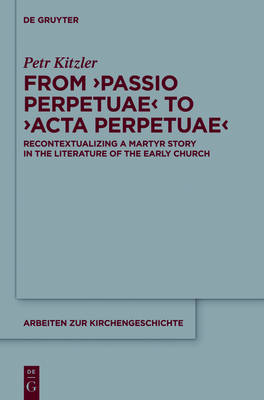Arbeiten zur Kirchengeschichte
1 primary work
Book 127
While concentrated on the famous Passio Perpetuae et Felicitatis, this book focuses on an area that has so far been somewhat marginalized or even overlooked by modern interpreters: the recontextualizing of the Passio Perpetuae in the subsequent reception of this text in the literature of the early Church. Since its composition in the early decades of the 3rd century, the Passio Perpetuae was enjoying an extraordinary authority and popularity. However, it contained a number of revolutionary and innovative features that were in conflict with existing social and theological conventions. This book analyses all relevant texts from the 3rd to 5th centuries in which Perpetua and her comrades are mentioned, and demonstrates the ways in which these texts strive to normalize the innovative aspects of the Passio Perpetuae. These efforts, visible as they are already on careful examination of the passages of the editor of the passio, continue from Tertullian to Augustine and his followers. The normalization of the narrative reaches its peak in the so-called Acta Perpetuae which represent a radical rewriting of the original and an attempt to replace it by a purified text, more compliant with the changed socio-theological hierarchies.
